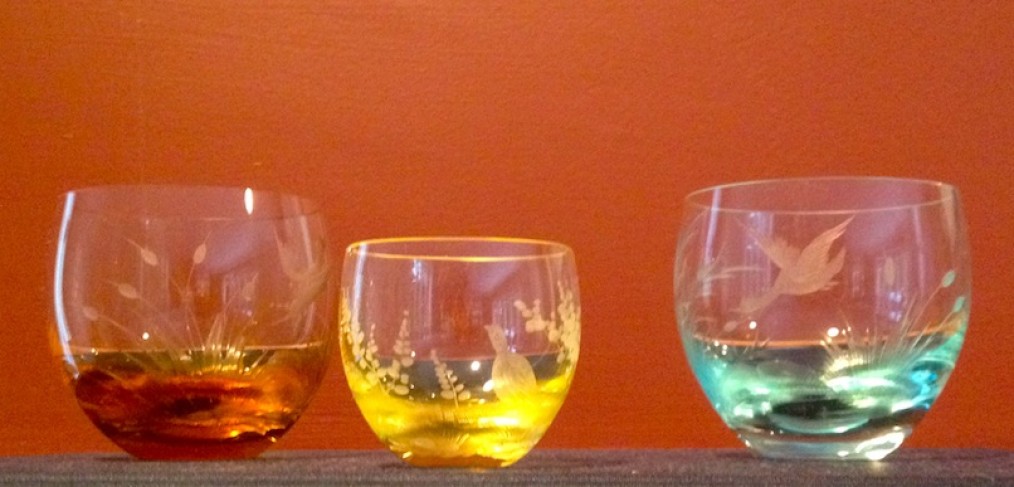
Prague Diary (2) – Creative Beauty & the Beast
Beauty
This Prague diary is about my trip to research my new historical novel. I am looking for the Communism Museum. Mild multiple sclerosis requires me to use walking poles and I am concentrating on planting my feet squarely on the cobblestones when suddenly a sense of familiarity envelops me.
‘Moser,’ says my brain. I look up and there it is: Moser’s crystal gallery, a place where stunning beauty has a practical purpose.
When I lived here, during a gap year between high school and university one of my jobs, as daughter of the Canadian ambassador, was to take visiting Canadian dignitaries to see Prague’s sights. Moser was a favorite stop.
Forty-six years later, in the same ornately paneled rooms, white plaster Cupids still look down from the ceiling at sculptures and vases, at eggshell thin goblets embossed with gold. Tumblers are luminous yellow, amber, rust, mauve, aquamarine, black. Scenes — a pheasant taking flight, a quail ruffing its feathers, an antlered deer in the forest — are etched into some of them.
And look, here is Moser’s signature collection of stemware, each glass with its own distinctive shape and personality: one with a round bowl and short stem, another tall and thin, another shallow, open, each one designed to best deliver a different kind of aperitif or wine or liqueur.
Here is the table where seventeen-year old me was taught to hold stemmed goblets at the base, with thumb and forefinger at a 45-degree angle, so the heat of my hand would not disturb the glass’ contents.
The Beast
Observing my limp and walking poles, a saleslady approaches. She introduces me to a portrait of Ludwig Moser that I do not remember. A
19th Century engraver, he created his unique lead-free crystal, then set up a factory in Karlovy Vary, not far from Prague. When the Austro-Hungarian emperor and England’s King Edward VII bought his crystal ware, it became famous across Europe. Ludwig’s son Leo took over the business but, because they were Jewish, the family was forced to sell the company and leave the country in 1934.
The Beauty And The Beast fairytale comes in a variety of forms, but in this true story, the Nazi beast was annihilated by a second beast. Czechoslovakia’s Communist government was trading on Moser’s name when I lived in Prague, using his creations to bring badly needed hard currency into the country. At the Karlovy Vary factory I saw artists in uniform brown aprons etching the beautiful scenes.
Now, home from my trip, I park my poles and think about beasts, how they can be political, economic, social or physical. Always they force us into futures we would not have chosen. But always, too, beauty endures, and nurtures us.
Today, Moser’s creative beauty is alive and well all over the world. In Canada, lights in my dining room corner cabinet shine through the coloured crystal glasses I have inherited. Their beauty and their message thrill me every time I look at them.

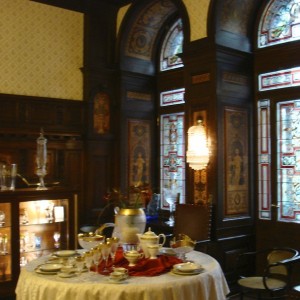
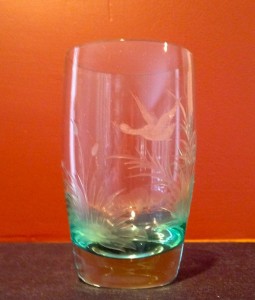
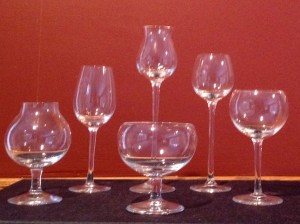
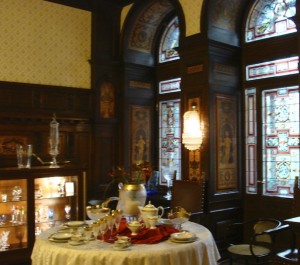
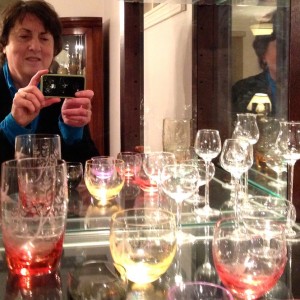
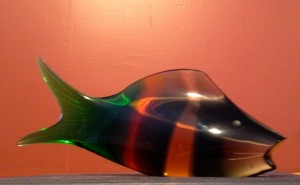
If you enjoyed this post, come and visit me here.
Jane
I was recently given the above shown small round glasses that have the game birds etched on them, as a gift. I very much like them.
How would I find out more information about them?
Thanks.
Ralph
Hi Ralph,
Lucky you! They are beautiful glasses, aren’t they? They’re made in Karlovy Vary, the Czech Republic. You’ll find lots of info at the Moser crystal website. The set I have dates to the mid-1960’s and I know Moser designs change. Not sure if they’re still etching wild birds. Maybe you could email Moser. Good luck,
Jane